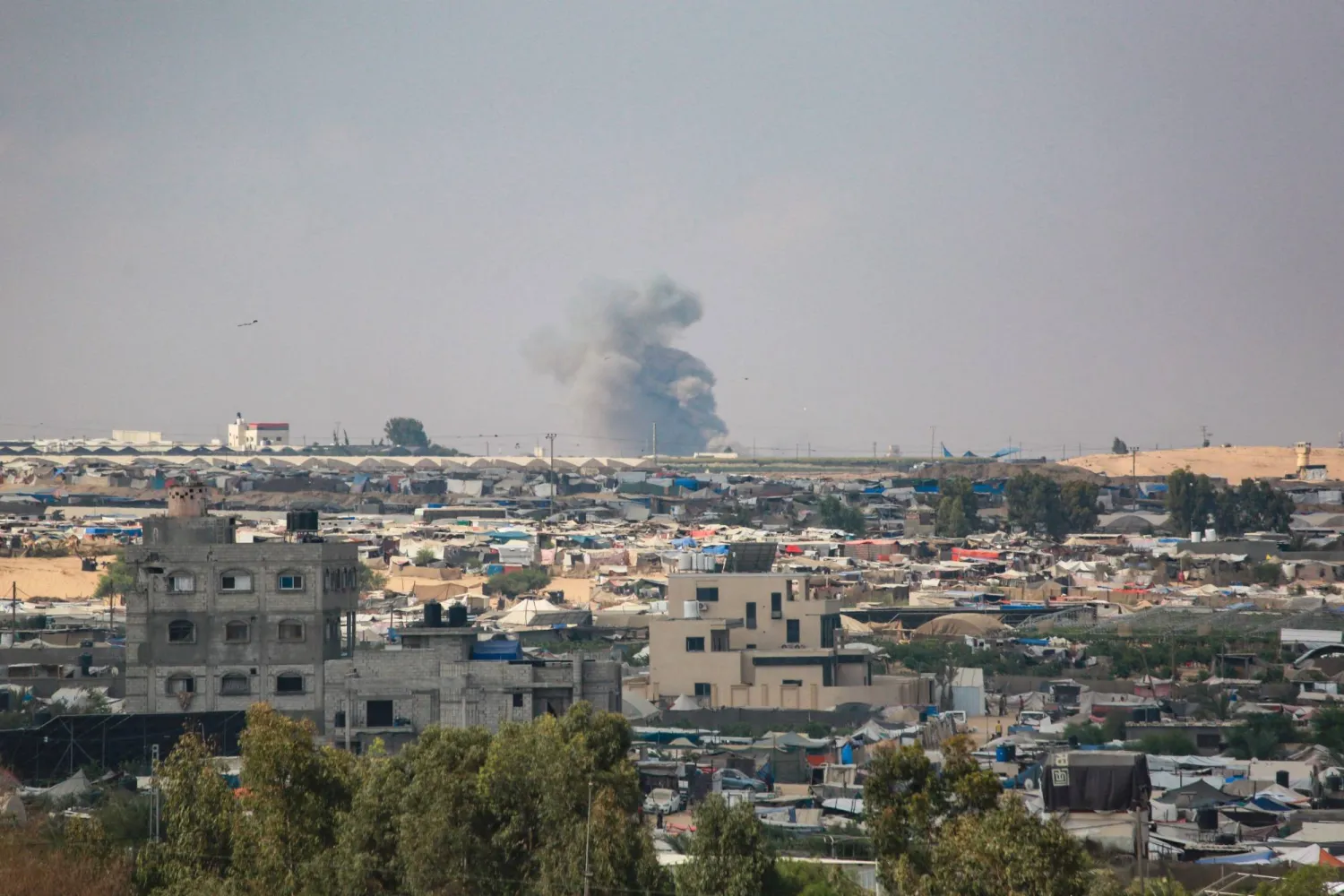Israeli forces advanced deeper into some towns on the eastern side of Khan Younis in southern Gaza on Thursday, hours after Israeli Prime Minister Benjamin Netanyahu told US lawmakers he was actively engaged in bringing hostages home.
Fighting in recent days has centered around the eastern towns of Bani Suaila, Al-Zanna, and Al-Karara, where the army said on Wednesday it had found the bodies of five Israelis who were killed in Hamas' Oct. 7 attack on Israel and held in Gaza since, Reuters said.
Hamas militants took more than 250 hostages in the early morning raid into southern Israel and killed 1,200 people, according to Israeli tallies.
Israel retaliated by vowing to eradicate Hamas in Gaza in a nine-month war that has killed more than 39,000 Palestinians, Gaza health officials say.
Several were wounded in the eastern towns during Israeli tank and aerial shelling, while an airstrike east of Khan Younis killed four people, Palestinian health officials said.
Israeli bombardment intensified in several areas in Rafah, near the border with Egypt, as tanks operated north, west and in the town center, residents and medics said. Several Palestinians were also wounded in Israeli fire earlier on Thursday.
The Israeli military said forces operating in Khan Younis killed dozens of militants and dismantled around 50 military infrastructures, while it continued activities in Rafah, killing two militants.
In a speech to the US Congress, Netanyahu said his government was actively involved in seeking the release of remaining hostages and was confident they would succeed.
DISAPPOINTING SPEECH
Hamas described the comments by Netanyahu as "pure lies" accusing him of thwarting efforts to end the war.
Netanyahu's comments also disappointed many displaced Palestinians who had hoped for a clearer signal of an imminent end to the fighting, which has laid the overcrowded enclave to waste and created a humanitarian crisis.
"It was depressing, he didn't even mention ceasefire at all, not even once," said Tamer Al-Burai, a resident of Gaza City, now displaced in Deir Al-Balah in the central Gaza Strip.
"People awaited some surprise, a ceasefire announcement by Netanyahu as a gift to (US President Joe) Biden, but they slept with much disappointment, as Netanyahu said he was determined to pursue war," Burai told Reuters via a chat app.
Deir Al-Balah, where tanks haven't yet invaded, is currently overcrowded with hundreds of thousands of Palestinians, displaced from other areas of the enclave, home to 2.3 million people.
"Netanyahu spoke in a play, he spoke to clowns," said Burai.
Diplomatic efforts by Arab mediators, backed by the United States, to conclude a ceasefire deal, seemed to be on hold, as Israel was expected to send a delegation for more talks next week.
In northern Gaza, an Israeli air strike on a house in the Sheikh Radwan suburb killed four people, medics said, while seven Palestinians arrived at a hospital in central Gaza who had been detained by Israeli forces and released in an area close to the border.
Israeli Forces Advance in Southern Gaza, Tanks Active in Rafah

This picture taken in Khan Yunis shows smoke billowing during Israeli military operations in Rafah, in the southern Gaza Strip, on July 24, 2024, amid the ongoing conflict between Israel and the Palestinian group Hamas. (Photo by Bashar TALEB / AFP)

Israeli Forces Advance in Southern Gaza, Tanks Active in Rafah

This picture taken in Khan Yunis shows smoke billowing during Israeli military operations in Rafah, in the southern Gaza Strip, on July 24, 2024, amid the ongoing conflict between Israel and the Palestinian group Hamas. (Photo by Bashar TALEB / AFP)
لم تشترك بعد
انشئ حساباً خاصاً بك لتحصل على أخبار مخصصة لك ولتتمتع بخاصية حفظ المقالات وتتلقى نشراتنا البريدية المتنوعة







